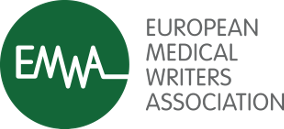Ghostwriting Positioning Statement
|
The European Medical Writers Association (EMWA): A Affirms that medical writers have a legitimate role in assisting named authors in developing manuscripts for peer-reviewed journals and material for presentation at peer-reviewed scientific meetings. B Believes that such contributions and relevant information about funding should be openly acknowledged. C Discourages use of the term ‘ghostwriter’ to describe professional medical writers, as this term implies that there is something secretive about the involvement of the writer. Rather, the involvement of professional medical writers should always be transparent. D Believes that properly trained medical writers can make a positive contribution to manuscript preparation. Such writers bring expertise about the require ments of journals and congresses and the ethics and conventions of peer-reviewed biomedical publications. They also offer skills in language, scientific communic ation, and data presentation. Such skills and knowledge enable professional writers to prepare drafts that are clearly written and follow the relevant guidelines. Involving medical writers may therefore raise the standard of publications and accelerate the writing and publication process. E Encourages medical writers to ensure that publications are developed in a responsible and ethical manner, as specified in the guidelines that accompany this position statement; in practice this means: • keeping up-to-date with relevant guidelines (e.g. CONSORT, ICMJE, GPP) and journal or conference requirements for financial disclosures or statements about competing interests • advising colleagues and customers about these guidelines and/or conventions on responsible publication or authorship and alerting them if they are not being followed • involving the named author(s) early in the publication process • refusing requests to develop publications without sufficient involvement of the named author(s) • making their best efforts to ensure that publications are accurate, balanced, and scientifically valid, acknowledging the limitations of their expertise and seeking guidance where needed • taking particular care to present results relating to the sponsor’s product in a fair and balanced fashion • endeavouring to ensure that the named author(s) has access to the necessary data and adequate time to contribute to a publication • endeavouring to ensure that all named authors approve the final version before submission to a journal or conference • refusing requests to develop publications in an unethical or irresponsible manner |
|
|
EMWA’s position on ghostwriting - October 2012 The European Medical Writers Association would like to make it clear that, contrary to what you may have read in a recently published popular science book, it is not a "ghostwriters' association". EMWA is an association for professional medical writers, and deplores ghostwriting. We have published guidelines for the role of medical writers in publications, which make it clear that ghostwriting is unacceptable [1]. EMWA notes the important distinction between ghostwriting, which is unethical, and professional medical writing assistance, which is legitimate and desirable [2]. Ghostwriting is what happens when someone writes a paper for publication in the medical literature, and neither the identity of the writer nor the funding source of the writing is disclosed to the reader. In contrast, EMWA guidelines state that the contribution of medical writers and their funding source should be made explicit. A medical writer who does not fulfil a journal's authorship criteria, and is therefore not eligible to be listed as an author, must be listed in an acknowledgements section to avoid ghostwriting. Research evidence shows that the involvement of professional medical writers in publications is associated with fewer retractions for misconduct [3] and better compliance with reporting guidelines [4]. EMWA is committed to continuing efforts towards the eradication of ghostwriting in the medical literature. Anyone who has any constructive suggestions for how EMWA could more effectively achieve this aim is welcome to contact us. References: 1. Jacobs A, Wager E. European Medical Writers Association (EMWA) guidelines on the role of medical writers in developing peer-reviewed publications. Curr Med Res Opin 2005;21:317-321. 2. Woolley KL. Goodbye Ghostwriters! How to work ethically and efficiently with professional medical writers. Chest 2006;130:921-923. 3. Woolley KL, Lew RA, Stretton S, et al. Lack of involvement of medical writers and the pharmaceutical industry in publications retracted for misconduct: a systematic, controlled, retrospective study. Curr Med Res Opin 2011;27:1175-1182. 4. Jacobs A. Adherence to the CONSORT guideline in papers written by professional medical writers. The Write Stuff 2010;19:196-200. |
|
|
Ghostwriting in the press - September 2010
EMWA continues to defend the medical writing profession and raise not only its standards but also its public perception.
To read EMWA's official response to Fugh-Berman’s article regarding the ghostwriting of publications about Prempro, published on PLoS on 7 September 2010, please click here.
Adam Jacobs, Press Officer, EMWA Andrea Palluch, Public Relations Officer, EMWA |
|

